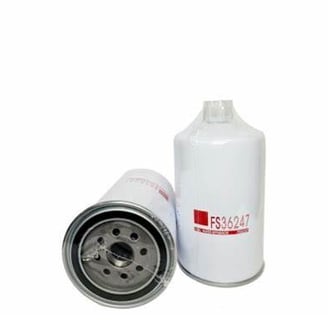Latest Trends in Oil Filter Technology: Innovations Improving Performance and Efficiency
Explore new technologies and innovations in oil filter design that are improving performance and efficiency
Latest Trends in Oil Filter Technology"
9/9/20243 min read


Advanced Filtration Materials
The realm of oil filter technology has witnessed significant advancements with the transition from conventional cellulose-based materials to innovative synthetic and micro-glass media. Traditional cellulose filters, though reliable, have limitations in efficiently capturing smaller contaminants due to their relatively larger pore size. This limitation has driven the industry towards the adoption of advanced filtration materials that promise superior performance and extended service life.
Among the forefront of new materials are synthetic and micro-glass media, revolutionizing how oil filters function. Synthetic media, typically composed of polyester or nylon, provides a consistent filter structure with smaller and more uniform pores. This structural consistency allows for more effective filtering, capturing contaminants as small as 5 microns, compared to the 30-40 micron capture capacity of traditional cellulose filters. The result is a more efficient removal of harmful particles, contributing to enhanced engine performance and longevity.
Similarly, micro-glass media are crafted from ultra-fine glass fibers, forming an intricate web of tiny pores. These micro-glass filters boast even higher filtration efficiency and dirt-holding capacity than synthetic materials. Due to their high dirt-retention and low pressure drop, micro-glass filters have become a preferred choice in high-performance applications where maintaining cleaner oil is crucial.
A prime example of recent products utilizing these advanced materials is the Royal Purple Extended Life Oil Filters, which combine synthetic media for maximum filtration efficiency and durability. The Fram Ultra Synthetic Oil Filters are another notable example, designed with dual-layer synthetic media that ensures superior filter longevity and contaminant capture.
By integrating synthetic and micro-glass materials, these latest oil filter technologies not only improve filtration efficiency but also reduce maintenance frequency. The ability to capture smaller, engine-damaging particles effectively enables vehicles to run smoother and longer, highlighting a pivotal shift towards more durable and efficient filtration solutions in the automotive industry.
```htmlSmart Oil Filters and Digital Monitoring
The incorporation of smart technology into oil filters represents a significant innovation in the field of automotive maintenance. Modern oil filters are now being equipped with sensors and Internet of Things (IoT) capabilities, enabling real-time monitoring of several crucial parameters. This technological advancement allows vehicle owners and maintenance professionals to gain valuable insights into the condition of the oil and the oil filter itself.
Smart oil filters use sensors to collect data on oil life, temperature, and pressure. This information is then transmitted to a central monitoring system or a smartphone app, providing users with timely updates on the oil's condition. By continuously monitoring these metrics, smart oil filters help in predicting when maintenance is required, thus allowing for a proactive rather than a reactive approach to vehicle care. This real-time data can be critical in preventing engine damage by ensuring that oil changes and filter replacements occur precisely when needed, rather than relying on fixed schedules that may not accurately reflect the oil's usability.
An example of this innovation in action is the FRAM Ultra Synthetic filter, which is equipped with real-time sensors that monitor oil condition and provide alerts when an oil change is needed. Another notable product is the Bosch Premium filter line, which includes advanced sensor technology to measure and relay oil temperature and pressure data. These smart oil filters are influencing maintenance schedules by providing accurate, data-driven insights, ensuring that vehicles run efficiently and reducing the likelihood of costly repairs.
Overall, the emergence of smart oil filters and digital monitoring systems is transforming how we approach vehicle maintenance. By integrating advanced sensors and IoT technology, these filters not only enhance performance and efficiency but also contribute to the extended longevity of automotive engines through predictive maintenance.
```Eco-Friendly and Sustainable Developments
The shift towards eco-friendly and sustainable oil filter technologies is a significant evolution in the automotive and industrial sectors. Manufacturers are increasingly focusing on developing biodegradable and recyclable oil filter materials as part of their commitment to reducing environmental impact. These innovations are designed to minimize waste and improve the ecological footprint of oil filtration systems.
Biodegradable oil filters are crafted from natural fibers, which not only facilitate effective filtration but also decompose naturally after use. This reduces the accumulation of non-biodegradable waste, which is a critical environmental concern. Recyclable oil filters, on the other hand, are designed to be broken down and reprocessed into new products, ensuring that resources are utilized efficiently and waste generation is minimized.
The environmental benefits of these technologies are substantial. By reducing the dependency on synthetic materials and integrating biodegradable alternatives, these filters significantly cut down on landfill waste and pollution. This approach is not just beneficial for the environment but also aligns with global sustainability trends, particularly those emphasized in international agreements and green policies.
Several companies are at the forefront of these advancements. For example, Mann+Hummel has introduced cutting-edge oil filters that utilize sustainable materials and advanced manufacturing processes to lessen environmental impact. Similarly, Fram is focusing on reducing the use of hazardous substances and employing eco-friendly production practices. These initiatives greatly contribute to the production of greener oil filters, reflecting the industry's commitment to environmental stewardship.
The progress in eco-friendly and sustainable oil filter technologies indicates a promising shift towards greener solutions, demonstrating that performance and environmental responsibility can go hand in hand. As these technologies advance and become more widely adopted, they will play an essential role in shaping a more sustainable future in oil filtration.
Quality
Reliable auto parts, service, and design solutions.
Trust
Innovation
+8615532823155
© 2024. All rights reserved.
